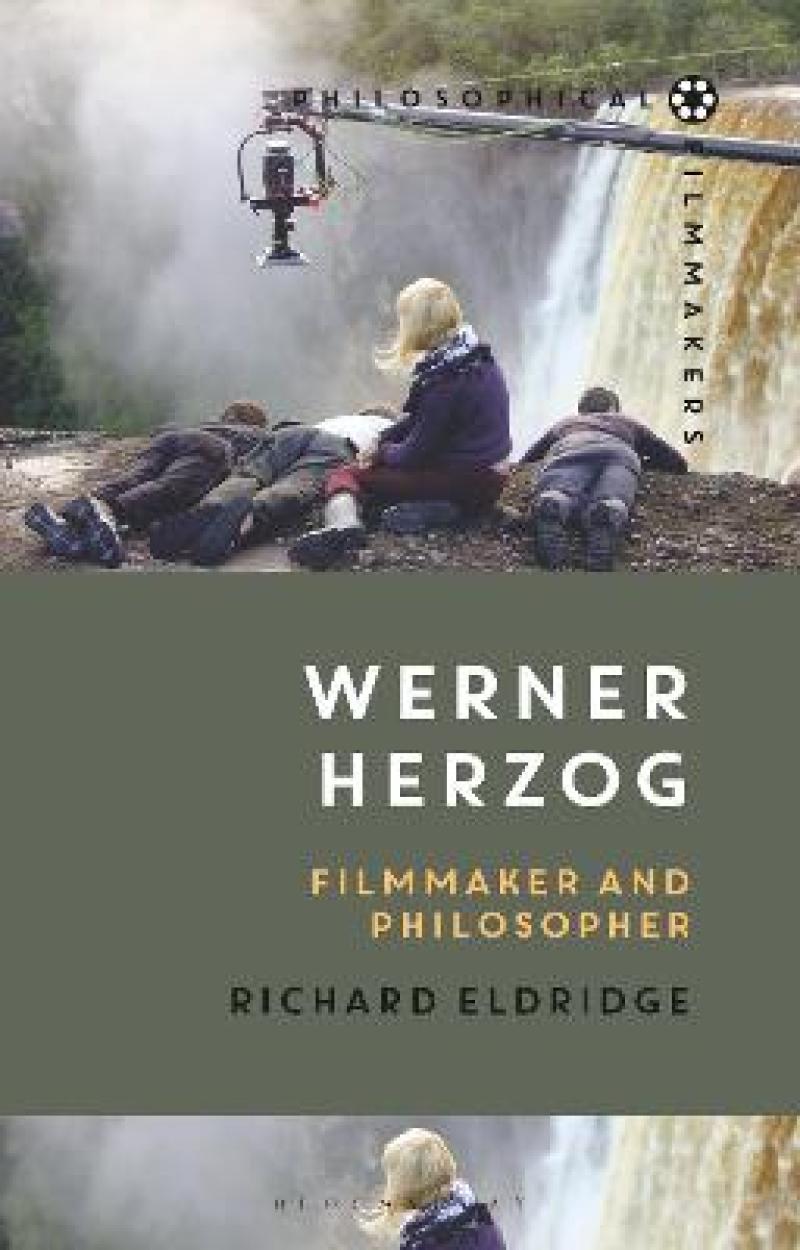Hegel, Nietzsche, and Heidegger are prominent among the philosophical sources, but Eldridge also draws extensively on commentary by contemporary film scholars and reviewers and on Herzog’s own writings and interviews. Particularly effective are Eldridge’s insightful close readings of particular films, both fiction and documentary … Summing Up: Recommended. Lower-division undergraduates through faculty.
CHOICE
The range of films discussed is excellent, avoiding the over-familiar concentration on the output of the 1960s and 70s.
Alphaville: Journal of Film and Screen Media
Richard Eldridge's excellent contribution to Bloomsbury's <i>Philosophical Filmmakers</i> series creates a significant set of interpretations of Werner Herzog's films, by showing how these films not only interact <i>with</i> philosophy, but do work parallel to that done <i>by </i>philosophy.
Monatshefte
Werner Herzog, although patently an auteur, has not always fared well with academic critics, due to their theoretical biases. Herzog’s art is Romantic, with a capital R, committed to defamiliarizing reality in the spirit of Heidegger. But in Richard Eldridge, Herzog has finally found his ideal interpreter. A philosopher steeped in German philosophy and Romantic literature, as well as Wittgenstein and Cavell, Eldridge is able to demonstrate Herzog’s attention to fundamental existential themes in ways that makes an exemplary case for the power of humane letters to reveal the importance of great art.
- Noël Carroll, Distinguished Professor of Philosophy, The City University of New York, USA,
In his brilliant and stimulating study, Richard Eldridge shows that the issues addressed in Herzog’s films are continuous with those of concern to philosophers, most centrally that of finding meaning in our lives. Eldridge enriches our understanding of the philosophical capabilities of film through his detailed exploration of how Herzog’s films present the human quest for meaning in a world that is, if not hostile, indifferent to our purposes. A major achievement!
- Thomas E. Wartenberg Professor Emeritus of Philosophy, Mount Holyoke College, USA,
This book brings remarkable intellectual breadth and depth to bear on Herzog as a filmmaker wrestling with the fundamental issues of human existence…With always acutely perceptive and often surprising results, Eldridge places the director’s work in mutually enlightening dialog with numerous conceptual, artistic, and historical traditions, while remaining highly sensitive to the fine-grained experiential and cinematic textures of the films discussed. Elegantly integrating Ancient, modern, and contemporary philosophical perspectives with film theory and criticism, this is not only a major original study of Herzog, but a template for a richer form of philosophy of, and through, film, with its own version of ‘ecstatic truth’.
- Daniel Yacavone Lecturer of Film Studies, University of Edinburgh, UK,
Acknowledgments
1. Introduction: Images and Contemporary Culture
2. Nature
3. Selfhood
4. History
Notes
Bibliography
Index
Films can ask big questions about human existence: what it means to be alive, to be afraid, to be moral, to be loved. The Philosophical Filmmakers series examines the work of influential directors, through the writing of thinkers wanting to grapple with the rocky territory where film and philosophy touch borders.
Each book involves a philosopher engaging with an individual filmmaker’s work, revealing how it has inspired the author’s own philosophical perspectives and how critical engagement with those films can expand our intellectual horizons.
